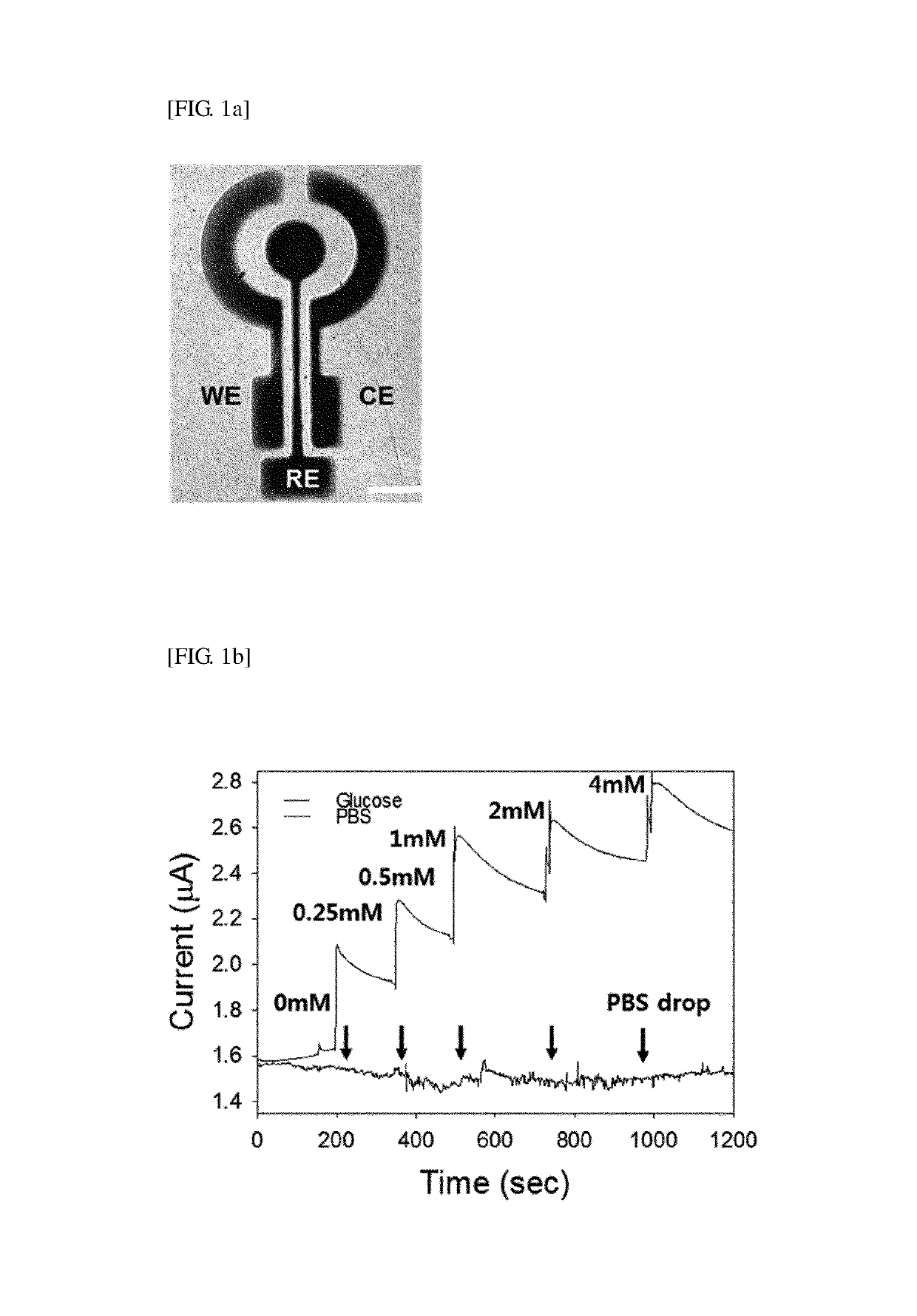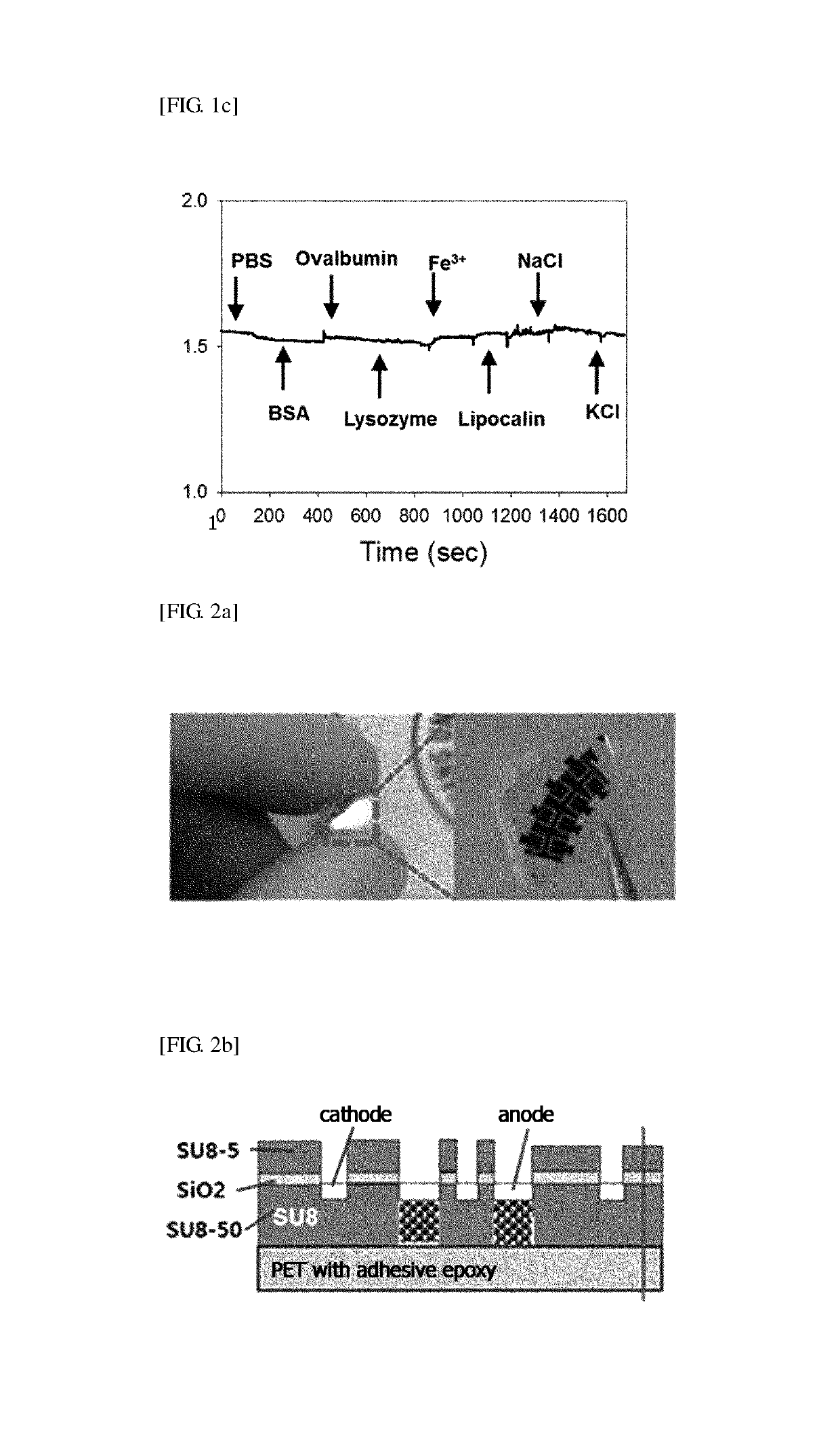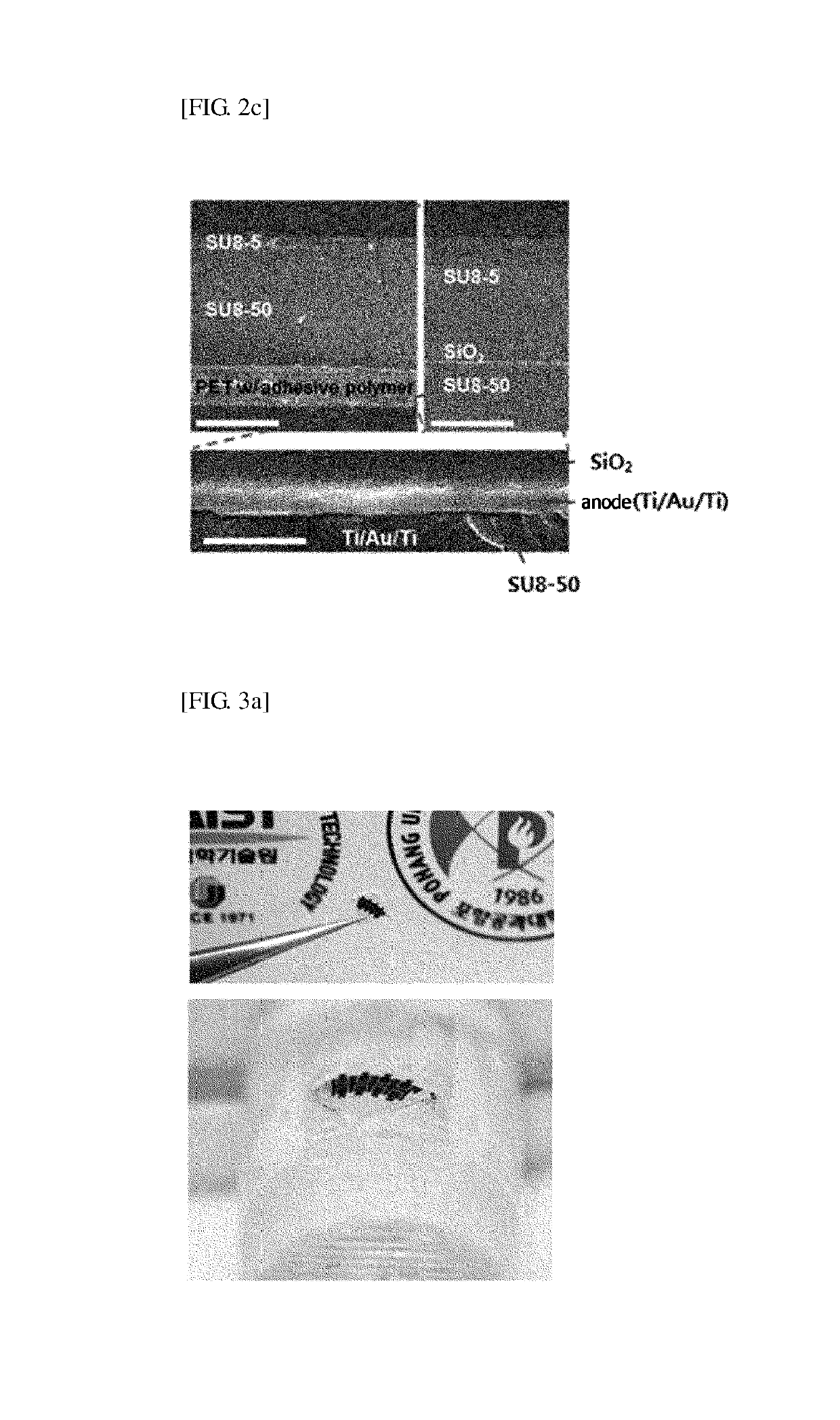Smart contact lenses and smart glasses
a technology of applied in the field of smart contact lenses and smart glasses, can solve the problems of large and heavy use, slow display conversion rate, and high power consumption, and achieve the effects of accurate determination, high stability, and easy and rapid identification of the progression of a patient's diseas
- Summary
- Abstract
- Description
- Claims
- Application Information
AI Technical Summary
Benefits of technology
Problems solved by technology
Method used
Image
Examples
preparation example 1
Production of Glucose Sensor
[0094]Three electrodes including a working electrode (WE), a reference electrode (RE) and a counter electrode (CE) were deposited on a polyethylene terephthalate (PET) substrate having a thickness of 25 μm using a shadow mask. A conductive electrode consisting of 20 nm titanium (Ti), 10 nm palladium (Pd) and 200 nm platinum (Pt) was deposited using an e-beam metal evaporator. Additionally, the RE was coated with 200 nm silver (Ag) using Ag / AgCl ink and a shadow mask.
[0095]In addition, glucose oxidase (GOX) was mixed with a poly(3,4-ethylenedioxythiophene)-polystyrene sulfonate (PEDOT-PSS) 1000 solution to have a concentration of 20 mg·mL−1, and then 2 μl of the solution was applied to coat the electrode and hardened in a titanium isopropoxide vapor environment.
[0096]In the present invention, FIG. 1(a) is an image of the glucose sensor produced according to the present invention.
experimental example 1
[0097]For the above-described glucose sensor produced in Preparation Example 1, variations in current over time according to the concentration of glucose and variations in current with respect to different materials, other than glucose, were measured.
[0098]To measure the variations in current according to glucose concentration, the glucose sensor was connected with a probe station, 700 mV was supplied, glucose was added in a variety of concentrations of 0, 0.25, 0.5, 1, 2 and 4 mM, and then the current variations were observed.
[0099]The resultant current variations are shown in FIG. 1. FIG. 1(b) is a graph showing the result of measuring the current variations of the glucose sensor over time according to glucose concentration, and FIG. 1(c) is a graph showing the result of measuring the current variations of the glucose sensor with respect to materials, other than glucose.
[0100]As shown in FIG. 1, it can be seen that an increase in current was directly proportional to the glucose co...
preparation example 2
posited Drug Reservoir
[0101]A gold-deposited drug reservoir was produced by the method as follows.
[0102]The drug reservoir was produced by the method illustrated with reference to FIGS. 13(a) to (g).
[0103]First, a glass substrate was prepared (FIG. 13(a)), a hydrogen-containing amorphous silicon layer (a-Si:H) was deposited on the glass substrate, a buffer layer (silicon dioxide, SiO2) was stacked on the amorphous silicon layer, and an electrode pattern was stacked on a partial surface of the buffer layer (FIG. 13(b)). For the electrode pattern, a plurality of positive electrodes may be formed in an array, and a negative electrode may be formed in a window shape. The positive electrodes of the electrode pattern may contain gold, and specifically, Ti / Au / Ti.
[0104]Afterward, a drug well layer (SU-8) was formed on the buffer layer not having the electrode pattern and the electrode pattern and patterned, thereby forming a drug well having an opening. The patterning was performed on the d...
PUM
| Property | Measurement | Unit |
|---|---|---|
| weight | aaaaa | aaaaa |
| thickness | aaaaa | aaaaa |
| concentration | aaaaa | aaaaa |
Abstract
Description
Claims
Application Information
 Login to View More
Login to View More - R&D
- Intellectual Property
- Life Sciences
- Materials
- Tech Scout
- Unparalleled Data Quality
- Higher Quality Content
- 60% Fewer Hallucinations
Browse by: Latest US Patents, China's latest patents, Technical Efficacy Thesaurus, Application Domain, Technology Topic, Popular Technical Reports.
© 2025 PatSnap. All rights reserved.Legal|Privacy policy|Modern Slavery Act Transparency Statement|Sitemap|About US| Contact US: help@patsnap.com



